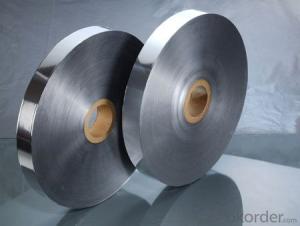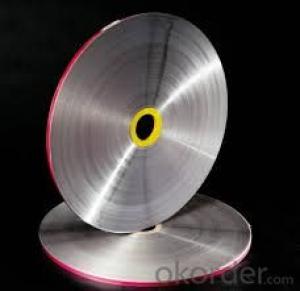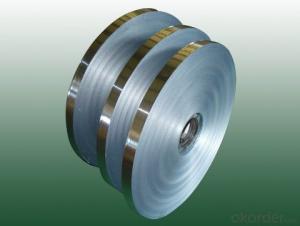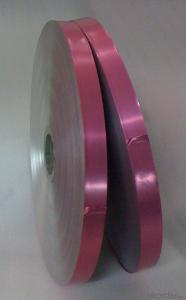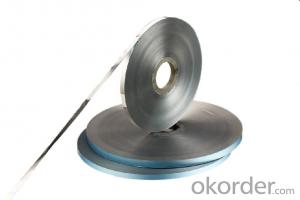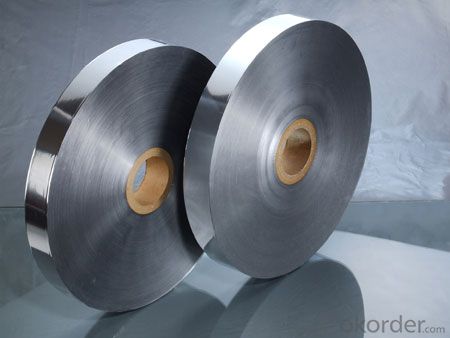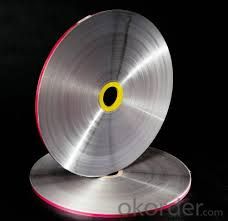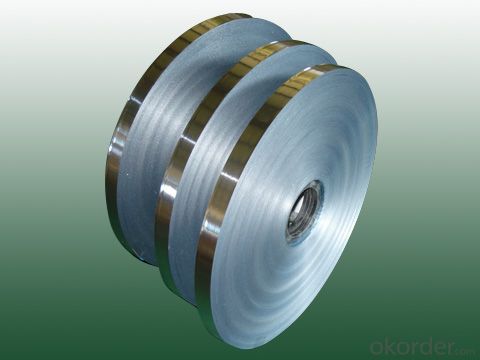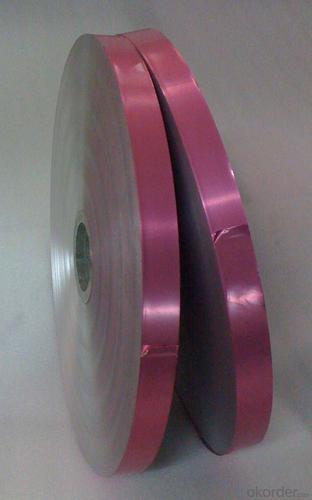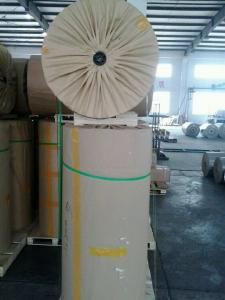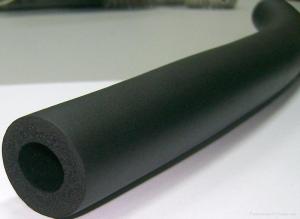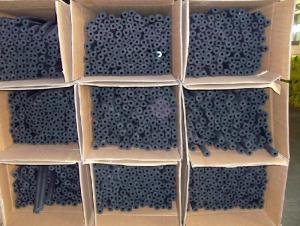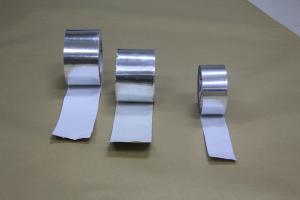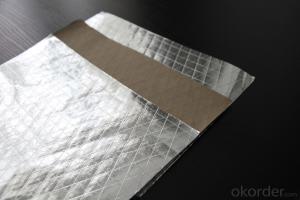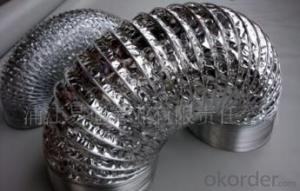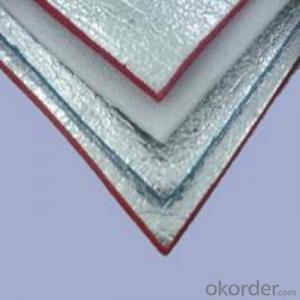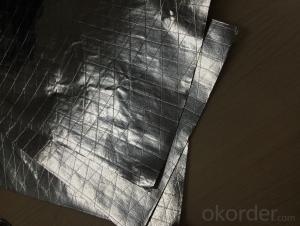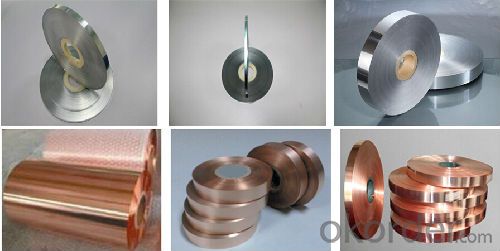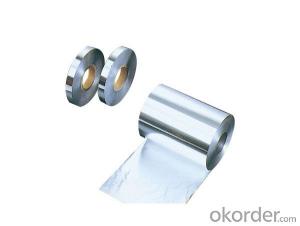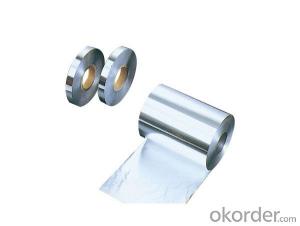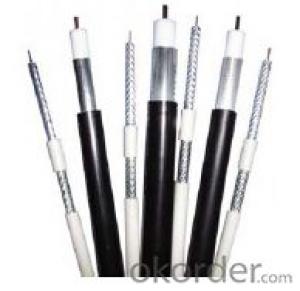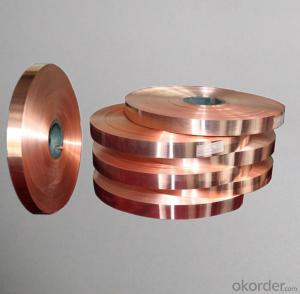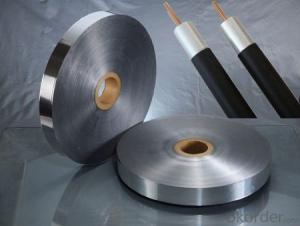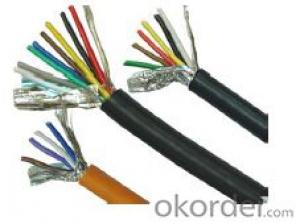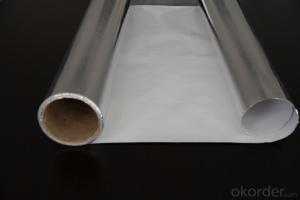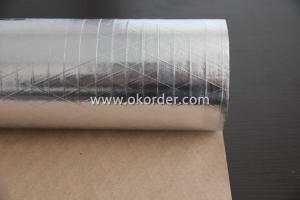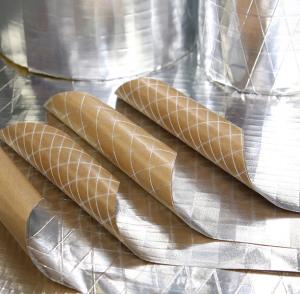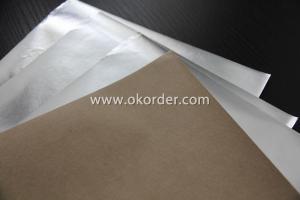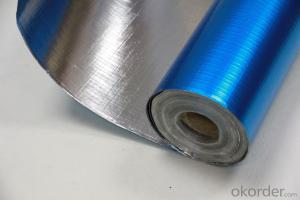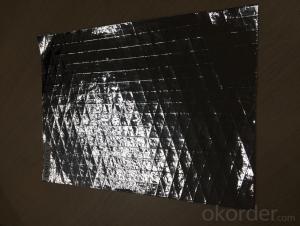Aluminum Foil Facing Shielding Copper Polyester Foil for Cable
- Loading Port:
- Shanghai
- Payment Terms:
- TT or LC
- Min Order Qty:
- 1000 m²
- Supply Capability:
- 1000000 m²/month
OKorder Service Pledge
OKorder Financial Service
You Might Also Like
Aluminum Mylar foil Shielding Foil for Coaxial Cable communication cable
1.Structure of Aluminum Mylar foil Shielding Foil Description:
Electrical cable is used to transfer electricity, information and the realization of electromagnetic energy transformation. The electrical cable in a broad term mainly indicates to cable and in a narrow term indicate insulation material. Its definition is the aggregation of different parts below: one or more insulation cores, the wrapping layers of the cores, the general protective layers and the outer protective layers. Cables also include additive conductor without insulator.
2.Main Features of the Aluminum Mylar foil Shielding Foil:
Aluminum Mylar foil Shielding Foil is applicable to the shielding of coaxial cable, local network wire, electronic communication cable and computer peripheral wire etc.
1.Thickness: min 6.5mic; width: 300-1000mm.
2. According to GB/T 3198-2010.
3.Usages: cable shield, candy wrap
3. Aluminum Mylar foil Shielding Foil Images
4. Aluminum Mylar foil Shielding Foil Specification
AL-PET laminated foil
Description: Apply for overall or individual twisted pair shield for electronic cable and local network cables, protect from external electromagnetic interference. Features option of LUBRITAPE apply to decrease 50% friction of aluminum surface.
Construction: Aluminum foil, Polyester film
CODE | TOTAL THICKNESS | ALU THICKNESS | GLUE | POLYESTER FILM | WEIGHT |
FP007012 | 22±3 | 7 | 3 | 12 | 38.8±5% |
FP010012 | 25±3 | 10 | 3 | 12 | 46.9±5% |
FP020020 | 43±3 | 20 | 3 | 20 | 83.8±5% |
FP025012 | 40±3 | 25 | 3 | 12 | 87.6±5% |
Special specifications are also available, according to customer’s order. | |||||
AL-PET-AL laminated foil
Description: resilient shielding in cable assembling and provide the enhanced shielding required in harsh environments.
Construction: Aluminum foil +Polyester film+ Aluminum foil
CODE | TOTAL THICKNESS | ALU THICKNESS | GLUE | POLYESTER FILM | GLUE | ALU THICKNESS | WEIGHT |
DFP007015 | 35±3 | 7 | 3 | 15 | 3 | 7 | 65±5% |
DFP009020 | 39±4 | 9 | 3 | 15 | 3 | 9 | 76±5% |
DFP015025 | 61±5 | 15 | 3 | 25 | 3 | 15 | 115±5% |
DFP025025 | 80±5 | 25 | 3 | 25 | 3 | 25 | 175±5% |
Special specifications are also available, according to customer’s order. | |||||||
Bonded AL-PET laminated foil
Description: A laminated aluminum-polyester-aluminum tape is fully bonded to the foam dielectric to provide 100% coverage, longitudinally applied over the polyethylene core and the tape minimizes signal leakage.
Construction: Aluminum foil + Polyester film + Aluminum foil + EMAA film
CODE | TOTAL THICKNESS | ALU THICKNESS | GLUE | POLYESTER FILM | GLUE | ALU THICKNESS | GLUE | EMAA | WEIGHT |
DFPH009012 | 65±5 | 9 | 3 | 12 | 3 | 9 | 3 | 25 | 98±5% |
DFPH009020 | 72±5 | 9 | 3 | 20 | 3 | 9 | 3 | 25 | 108±5% |
DFPH009025 | 75±5 | 9 | 3 | 25 | 3 | 9 | 3 | 25 | 114±5% |
DFPH010025 | 84±5 | 10 | 3 | 25 | 3 | 10 | 3 | 25 | 126±5% |
Special specifications are also available, according to customer’s order. | |||||||||
Copper polyester foil
Description: Copper foil, copper lamination foil typically use as shielding for low/medium voltage cable and radio frequency coaxial cable. The rolled annealing copper foil is flexible to wrap cable core, also it has the excellent physical properties, Polyester film provides electrical insulation and high mechanical properties.
Construction: Copper foil + Polyester film
CODE | TOTAL THICKNESS | CU THICKNESS | GLUE | POLYESTER FILM | WEIGHT |
CP018012 | 33±3 | 18 | 3 | 12 | 175±10% |
CP007020 | 46±3 | 18 | 3 | 25 | 195±10% |
CP015012 | 30±3 | 15 | 3 | 12 | 160±10% |
Special specifications are also available, according to customer’s order. | |||||
5.FAQ
We have organized several common questions for our clients,may help you sincerely:
① Where you used this foil?
Aluminum Mylar foil Shielding Foil is used for cable shield, candy wrap for the shielding of coaxial cable, local network wire, electronic communication cable and computer peripheral wire etc.
②How to guarantee the quality of the products?
We have established the international advanced quality management system,every link from raw material to final product we have strict quality test;We resolutely put an end to unqualified products flowing into the market. At the same time, we will provide necessary follow-up service assurance.
③How long can we receive the product after purchase?
In the purchase of product within three working days, We will arrange the factory delivery as soon as possible. The pecific time of receiving is related to the state and position of customers.Commonly 7 to 10 working days can be served.
- Q: What specific cleaning procedures should be followed after using aluminum foil facing?
- <p>After using aluminum foil facing, there are a few special cleaning methods to consider. First, remove any leftover food or debris from the surface. If it's a reusable aluminum foil facing, gently wash it with warm soapy water and a soft sponge, avoiding abrasive materials that could scratch the surface. Rinse thoroughly and dry completely to prevent rust. For disposable foil, simply dispose of it according to local waste management guidelines. Avoid using harsh chemicals or extreme heat as they can damage the aluminum foil facing. Regular maintenance will ensure the longevity and hygiene of your aluminum foil facing.</p>
- Q: What are some safer alternatives to aluminum for food packaging?
- <p>Yes, there are several alternative materials for food packaging that are considered safer than aluminum. These include biodegradable materials like PLA (polylactic acid), which is derived from renewable resources like corn starch. Paper-based packaging is also a popular choice, often coated with wax or other materials for added protection. Additionally, glass containers are a non-toxic and reusable option. Some companies are exploring innovative solutions like mushroom-based packaging and edible packaging made from seaweed. These alternatives aim to reduce environmental impact while maintaining food safety and quality.</p>
- Q: This question asks for methods to clean aluminum foil that has excess oil on it after cooking or food storage.
- <p>To remove excess oil from aluminum foil facing after cooking or food storage, you can follow these steps: 1. Allow the foil to cool down to avoid burns. 2. Use a paper towel to blot and absorb the excess oil. 3. For stubborn oil, you can wipe the foil with a damp cloth or sponge with a mild dish soap. 4. Rinse the foil thoroughly with warm water to remove any soap residue. 5. Dry the foil with a clean towel or let it air dry. If the oil is extremely stubborn, consider using a gentle scrubber or baking soda paste to help remove it. Always check the foil for any damage or wear before reusing it.</p>
- Q: This question asks for guidance on preparing a nutritious meal using aluminum foil as a cooking method.
- <p>To make a healthy meal using aluminum foil, consider 'foil packet cooking'. Choose lean protein like chicken or fish, and pair it with a variety of colorful vegetables such as bell peppers, zucchini, and cherry tomatoes. Season with herbs, garlic, and a drizzle of olive oil. Fold the foil to create a sealed packet and bake in the oven at 400掳F (200掳C) for about 20-25 minutes or until the protein is cooked through and the vegetables are tender. This method retains nutrients and flavors while minimizing added fats.</p>
- Q: This question asks for a method to clean aluminum foil after cooking to get rid of excess oil.
- <p>To remove excess oil from aluminum foil after cooking, first let the foil cool down to avoid burns. Then, you can use a paper towel or a clean cloth to gently wipe away the oil. For stubborn oil, you can wash the foil with warm soapy water. If you're reusing the foil, make sure it's thoroughly dried before storing to prevent any potential for bacterial growth. Always remember to handle aluminum foil with care as it can be sharp and may tear easily.</p>
- Q: Is it safe to use recycled aluminum foil as a facing material in cooking?
- <p>No, it is not recommended to use recycled aluminum foil for cooking. Recycled aluminum foil may contain impurities, contaminants, or have been exposed to chemicals that could be harmful when heated. Additionally, the quality and safety of recycled materials are often not as strictly controlled as new materials, which could lead to potential health risks. It's always best to use new, high-quality aluminum foil for cooking to ensure food safety and hygiene.</p>
- Q: This question asks for methods to clean oil stains from the aluminum foil facing of a surface.
- <p>To remove oil stains from aluminum foil facing, start by scraping off any excess oil with a plastic scraper or a butter knife. Then, mix a solution of warm water and dish soap. Apply the solution to the stained area and let it sit for a few minutes. Use a soft cloth or sponge to gently scrub the area. Rinse with warm water and dry thoroughly. For stubborn stains, you can use a mixture of baking soda and water to create a paste, apply it to the stain, let it sit for 15 minutes, then scrub and rinse. Always test cleaning methods on a small, inconspicuous area first to ensure no damage occurs.</p>
- Q: Is it safe to use aluminum foil facing material to cover food when microwaving?
- <p>No, it is not recommended to use aluminum foil facing to wrap food in the microwave. Aluminum foil can cause sparks and potentially start a fire due to the metal's conductive properties. It can also reflect microwaves, damaging the microwave's interior and potentially the appliance itself. Always use microwave-safe materials, such as microwave covers or wax paper, to cover food during microwaving.</p>
- Q: Is it safe to use old aluminum foil for food packaging, considering potential health risks and material degradation?
- <p>Using old aluminum foil for food packaging is not recommended. Over time, aluminum foil can become discolored, thin, or develop pinholes, which can compromise its integrity. These changes can lead to food contamination and the foil's ability to protect food from bacteria or other contaminants. Additionally, old aluminum foil may contain residues from previous uses that could mix with new food items, potentially causing off-flavors or health concerns. It's best to use fresh, clean aluminum foil for food packaging to ensure safety and hygiene.</p>
- Q: What are the negative effects on the environment when aluminum foil facing is utilized?
- <p>The environmental impacts of using aluminum foil facing include increased waste generation due to its non-biodegradable nature, leading to landfill accumulation. Aluminum production is energy-intensive, contributing to greenhouse gas emissions. Additionally, improper disposal can lead to water and soil contamination. Recycling rates for aluminum are high, but not all foil is recyclable, and the process itself consumes energy. Overall, aluminum foil facing can have significant environmental consequences if not managed responsibly.</p>
Send your message to us
Aluminum Foil Facing Shielding Copper Polyester Foil for Cable
- Loading Port:
- Shanghai
- Payment Terms:
- TT or LC
- Min Order Qty:
- 1000 m²
- Supply Capability:
- 1000000 m²/month
OKorder Service Pledge
OKorder Financial Service
Similar products
Hot products
Hot Searches
Related keywords
